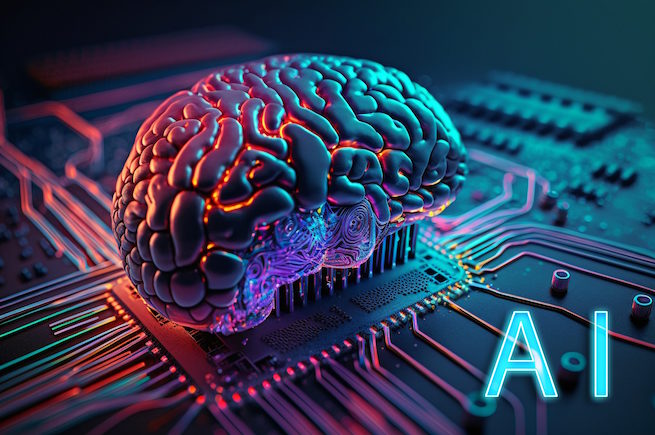The beginnings of artificial intelligence (AI) in the context of electronic blogging can be traced back to the integration of AI technologies to enhance various aspects of blog creation, management, and user experience. Here’s an overview of the early developments and current applications of AI in electronic blogging:
Content Creation and Curation: AI has been employed to assist bloggers in generating content. Natural Language Processing (NLP) algorithms can analyze vast amounts of data to generate blog post ideas, provide topic suggestions, and even generate written content based on predefined parameters. AI-powered tools can also curate and aggregate relevant content from various sources, helping bloggers discover and share valuable information with their readers.
Language Translation: AI-powered translation tools have made it easier for bloggers to reach a global audience. These tools employ machine learning and NLP techniques to automatically translate blog posts into different languages, enabling bloggers to expand their readership and engage with international audiences.
Personalized User Experience: AI algorithms can analyze user behavior and preferences to deliver personalized content recommendations. By tracking user interactions, such as clicks, likes, and shares, AI can provide tailored suggestions for blog posts, related articles, or products that align with the reader’s interests, enhancing the user experience and increasing engagement.
Chatbots and Customer Support: Many blogs incorporate chatbot systems to provide instant assistance and support to readers. AI-powered chatbots can answer common questions, provide recommendations, and offer interactive experiences. These chatbots leverage machine learning and natural language understanding to simulate human-like conversations and provide efficient customer support.
Search Engine Optimization (SEO): AI algorithms have had a significant impact on SEO practices for blogs. Search engines employ AI techniques to understand and analyze content quality, relevance, and user intent, which affects how blogs are ranked in search results. Bloggers can leverage AI-powered tools to optimize their content for search engines, identify relevant keywords, and improve their overall search visibility.
Sentiment Analysis and Feedback: AI-powered sentiment analysis tools can analyze user comments, feedback, and social media mentions to gauge the sentiment and perception around blog content. Bloggers can utilize this information to understand their audience’s opinions, identify areas for improvement, and tailor their content strategies accordingly.
Content Moderation: AI algorithms have been used to automate content moderation processes, helping bloggers manage and filter user-generated content. These algorithms can detect and flag inappropriate or spammy comments, ensuring a safe and respectful environment for readers to engage with the blog.
Voice Search and Voice Assistants: With the rise of voice-enabled devices and virtual assistants like Amazon Alexa and Google Assistant, blogs can optimize their content for voice search. AI-powered voice recognition and natural language understanding enable bloggers to create voice-friendly content and provide voice-based assistance to readers.
It’s important to note that AI in electronic blogging is an evolving field, and its applications continue to expand. As AI technologies advance, bloggers can expect further innovations that enhance content creation, improve user experience, and provide more efficient ways to manage and grow their blogs.

Certainly! Here are some additional details on the applications and future potential of artificial intelligence (AI) in electronic blogging:
Automated Content Generation: AI algorithms are being developed to generate blog content automatically. These algorithms analyze vast amounts of data, including articles, research papers, and online sources, to generate coherent and relevant written content. While AI-generated content is still in its early stages, it has the potential to assist bloggers by providing topic ideas, summarizing information, or even generating complete blog posts.
Content Recommendation Systems: AI-powered recommendation systems play a crucial role in enhancing the user experience on blogs. These systems analyze user behavior, preferences, and historical data to provide personalized content recommendations. By understanding individual readers’ interests and browsing patterns, AI algorithms can suggest related blog posts, articles, or products that are likely to resonate with each user, increasing engagement and driving more targeted traffic.
Enhanced Search and Discovery: AI technologies, such as natural language processing and machine learning, are being used to improve search capabilities on blogs. AI-powered search algorithms can better understand user queries, context, and intent, delivering more accurate and relevant search results. This improves the discoverability of blog content and helps readers find the information they are looking for more efficiently.
Automated Editing and Proofreading: AI tools can assist bloggers in the editing and proofreading process. These tools employ natural language processing and grammar-checking algorithms to identify spelling and grammar errors, suggest improvements, and enhance the overall readability of blog posts. AI-powered editing tools can save time and improve the quality of written content.
Image and Video Analysis: AI algorithms can analyze images and videos to extract information, identify objects, and generate descriptive tags. Bloggers can leverage AI-powered image recognition to automatically tag and categorize visual content, making it easier for readers to search and navigate through image-rich blog posts. AI can also aid in video transcription, captioning, and summarization, making video content more accessible and engaging.
Sentiment Analysis and Audience Insights: AI-powered sentiment analysis tools can help bloggers understand the sentiment and opinions of their readers. By analyzing comments, social media mentions, and user feedback, AI algorithms can provide insights into how readers perceive and engage with the blog content. This information can guide bloggers in tailoring their content strategies, addressing concerns, and improving user satisfaction.
Predictive Analytics: AI algorithms can analyze historical data, user behavior patterns, and market trends to provide predictive insights for bloggers. By leveraging machine learning techniques, bloggers can gain insights into audience preferences, content performance, and potential future trends. This information can inform content creation strategies, optimize publishing schedules, and drive more targeted marketing efforts.
Natural Language Processing for Voice Interaction: As voice-enabled devices and virtual assistants become increasingly popular, AI-powered natural language processing is crucial for voice interaction with blogs. Bloggers can optimize their content for voice search, ensuring that it is easily discoverable and compatible with voice-based queries. AI-powered voice assistants can also be integrated into blogs to provide voice-based content delivery and interactive experiences.
The future potential of AI in electronic blogging is vast. As AI technologies continue to advance, bloggers can expect more sophisticated content generation tools, improved user personalization, enhanced search capabilities, and novel ways to engage and interact with their audience. AI will likely play a central role in shaping the future of electronic blogging by offering innovative solutions and transforming the way blogs are created, managed, and consumed.























